◊ By Bhumika K
Note: To access contact details of Indian organic product suppliers, buy the Organic Directory
According to a recent report by the market research firm, TechSci Research, the organic personal care products market in India was valued at US$ 571.43 million in FY 2020-21 and is projected to advance with a CAGR (Compound Annual Growth Rate) of 14.69% in the forecast period to reach US$ 1,239.04 million in FY2026.
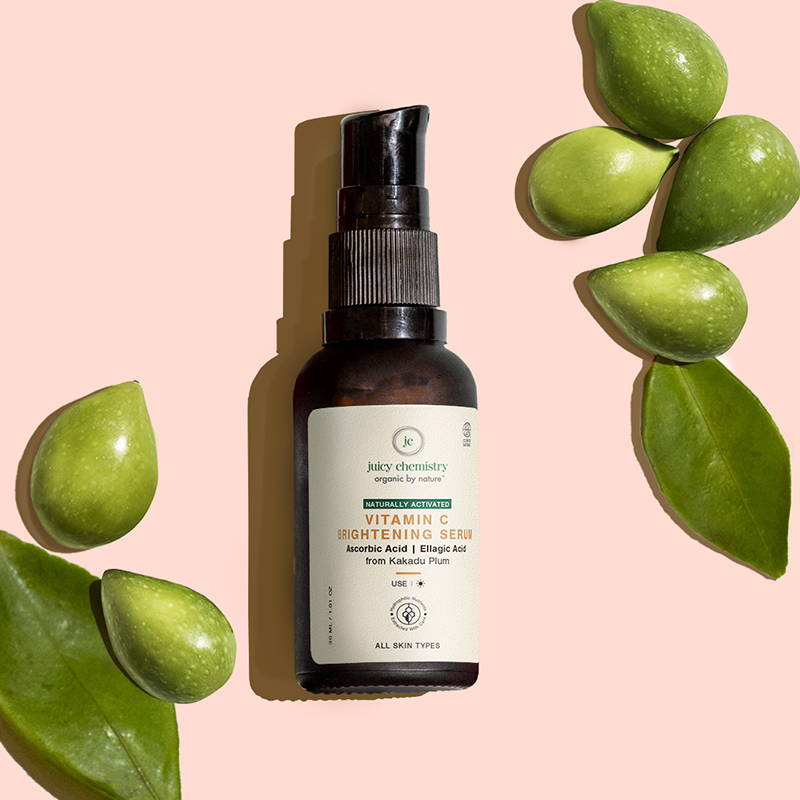
Juicy Chemistry, a first-mover in the Indian organic personal care segment, offers a vast range of ECOCERT-certified personal care products
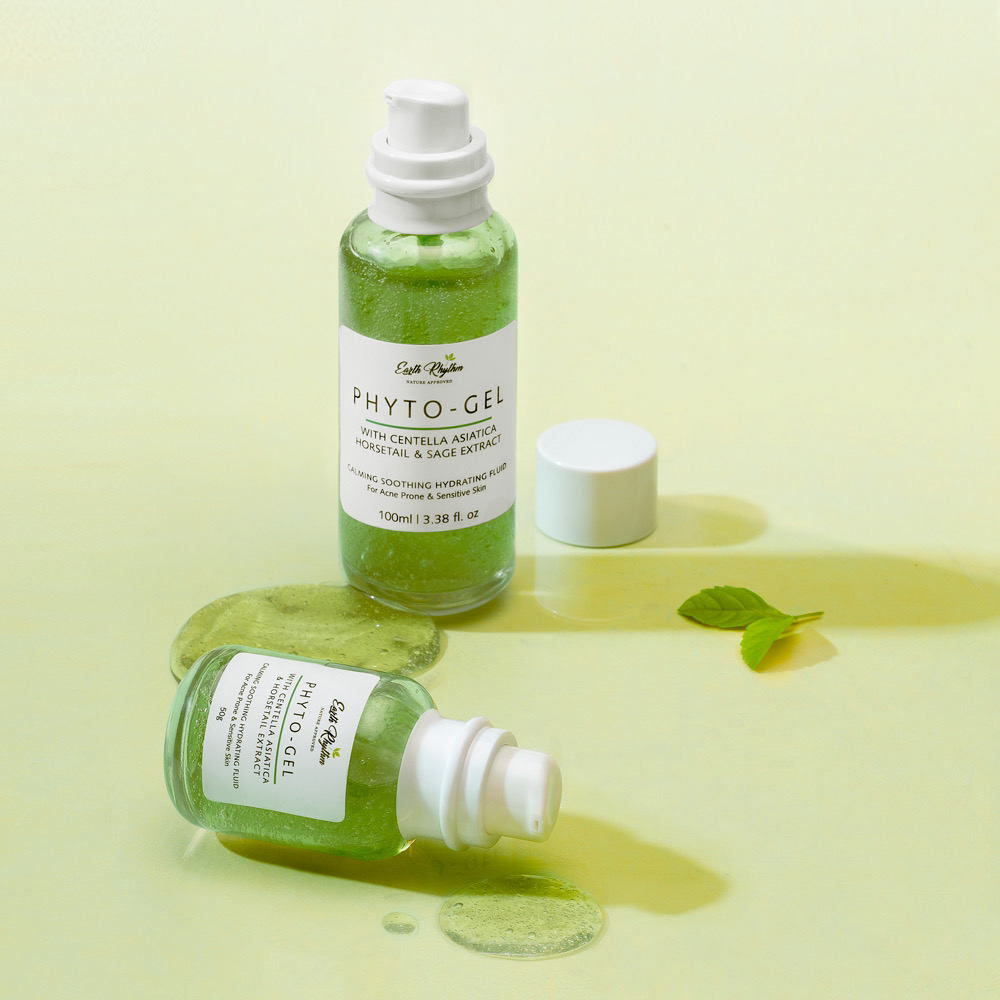
Earth Rhythm offers a range of skin and hair solutions, as well as, makeup – many of them with ECOCERT-certified ingredients. In April 2022, omnichannel beauty retailer Nykaa acquired 18.51% of the brand for approximately US$5,445,868
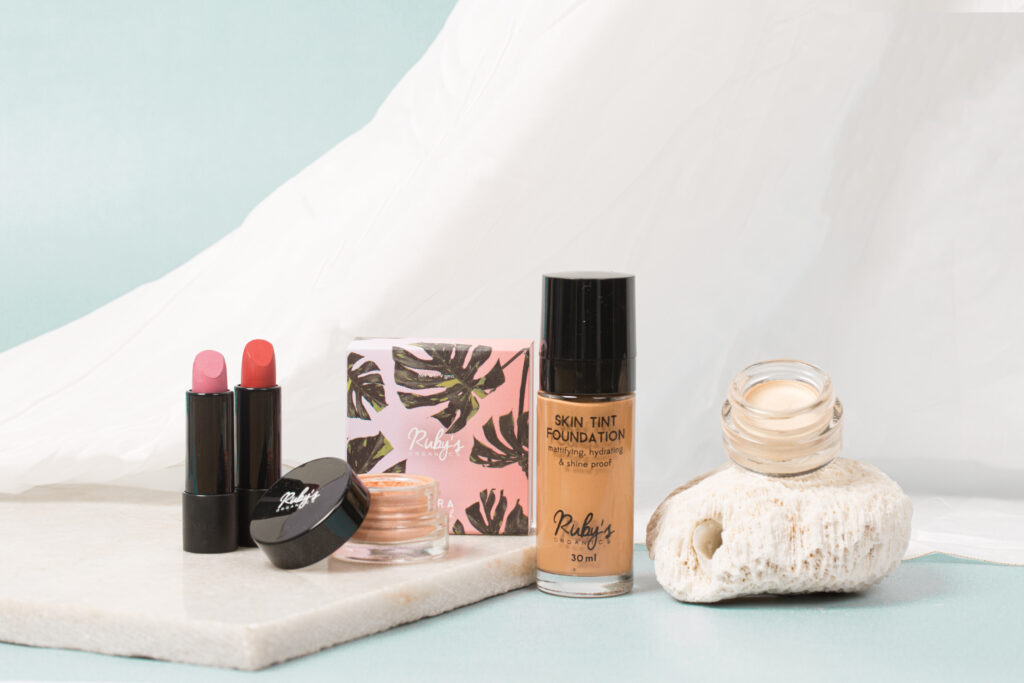
Ruby’s Organics, India’s first organic-only makeup brand
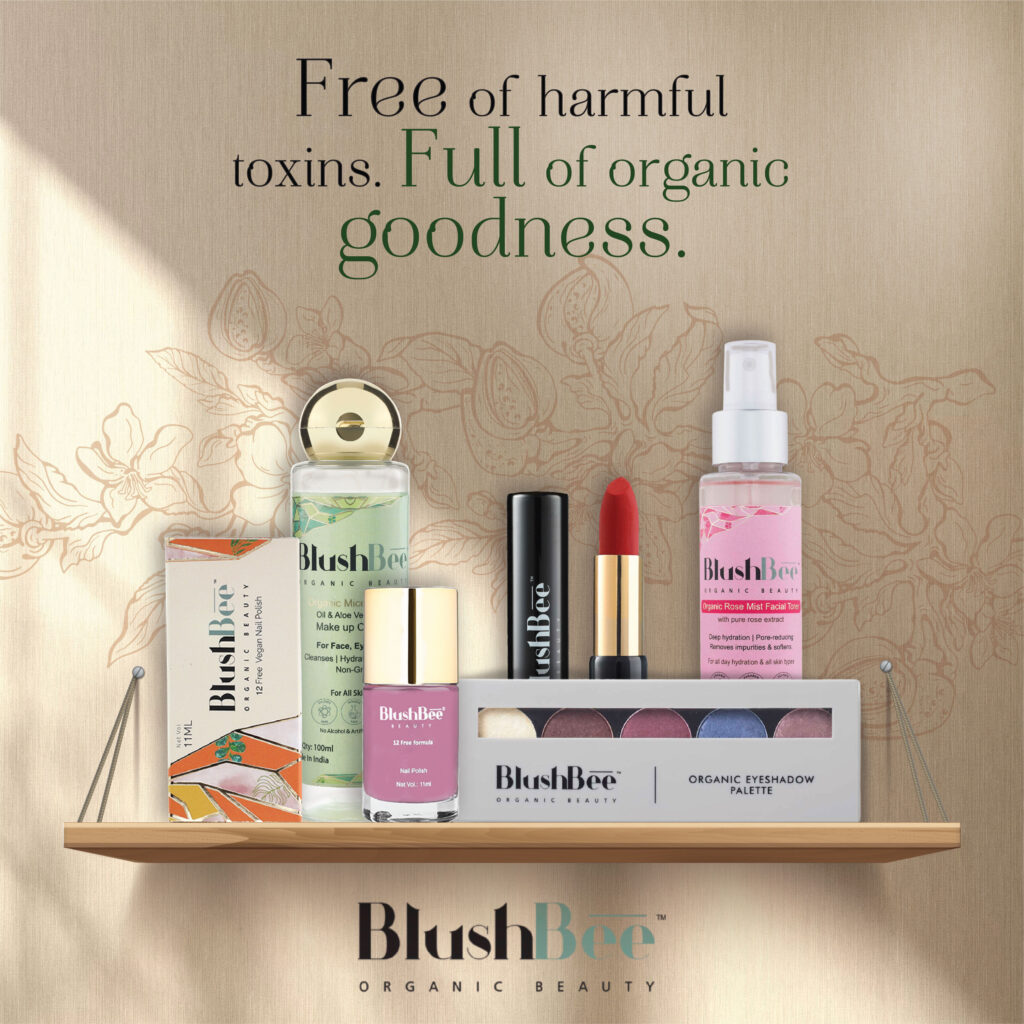
Blush Bee is another brand offering organic cosmetics to Indian consumers
CLEAN BEAUTY IS BECOMING THE NEW NORMAL
With increasing literacy and urbanisation of the country’s population, the awareness of the ill effects of chemicals and synthetic ingredients (like parabens, phthalates, propylene glycol and formaldehyde) used in personal care products is rising.
Moreover, India’s GDP has been growing over the years, leading to an increase in per capita income levels, which is enabling consumers to spend more on lifestyle products. The country’s consumer spending stood at US$ 236.94 billion in October 2016, which increased to US$ 309.46 billion by January 2020.
According to a survey conducted by the business newspaper, The Economic Times, 71% of consumers would select a face cream or lotion if it claimed to be ‘natural’; and 38% would purchase a shampoo or hair oil if it was made with ‘botanical’ ingredients. It is evident people are drawn towards chemical-free and organic products that are gentler on the skin.
Harini Sivakumar, Founder of the cosmeceuticals brand, Earth Rhythm, observes that organic personal care brands initially started with “paraben-free” products and the marketing lexicon gradually expanded to include the term ‘sulfate-free’ and then, ‘100% plant-derived ingredients’.
Ubiquitous social media penetration, peer influence, and the rise of clean lifestyle influencers, have also contributed to awareness, as well as, elevated aspirations for wellness and related products.
“It’s almost like a revolution in consumerism. People have become more conscious and consuming has become minimalistic in nature — people are buying fewer things than before but are paying keen attention to detail in terms of what they buy and what it contains,” says Rubeina Karachiwalla, Founder of Mumbai-based Ruby’s Organics, India’s first organic-only makeup brand.
Ruby’s, which sells organic highlighters, mascara, lipsticks, etc, made of ECOCERT-certified ingredients, has been adding 10 to 15 products to its repertoire every year since its inception in 2017, in a bid to meet growing consumer demand.
Pritesh Asher, who co-founded Coimbatore-based Juicy Chemistry with wife, Megha, says the biggest driver for growth in the organic cosmetics and personal care products space is that consumers’ desire to go clean. “They’re looking at a holistic lifestyle. A lot of them have already made the switch to clean food. Next is Cosmetics. The pandemic has only accelerated the migration,” he says.
Juicy Chemistry, which offers ECOCERT-certified personal care products, expects to clock 100% growth, and stabilise CAGR at around 60 to 70%.
THE AGE OF THE ‘SKINTELLECTUAL’
With the plethora of information available online, consumers have become autodidacts, consuming information on the significance of ingredients, hazards of chemicals, etc. This has made it easier for organic brands to communicate the virtues of their products to consumers.
“It’s almost like a circle — brands are driving education and consumers are receiving it, and responding through their spending habits. It has that kind of ripple effect on consumerism,” says Karachiwalla.
Sivakumar brands her consumers as “skintellectuals”. “With the increase in skin problems associated with the use of conventional products that are infused with chemicals, people have started seeking alternatives. And with so much information available online, consumers have been reading up on skincare and wellness matters. This has made it easy for brands to educate these ‘skintellectuals’,” she says.
Her brand, Earth Rhythm, which offers a vast range of skin and hair solutions, as well as, makeup (many of them with ECOCERT-certified ingredients), received funding of US$1.2 million from Anicut Angel Fund in 2021. For FY 2021-22, the brand has achieved a GMV (Gross Merchandise Value) of US$5.8 million with a CAGR of 500%. In April 2022, omnichannel beauty retailer Nykaa acquired 18.51% of Earth Rhythm for approximately US$5,445,868.
EMERGING TRENDS
Many companies in the industry are innovating current product lines by improving packaging, product quality, and marketing with adequate product placements, especially in metro cities, where these products are gaining more traction. In terms of packaging, there is a distancing from plastic towards eco-friendly options.
Companies are launching improved products in simple and daily use segments like lip care and oils, which is helping market players attain better market share.
Online Sales is the emerging distribution channel in the organic personal care products market, and the pandemic has fast tracked its progress as more customers opt for online shopping.
A new development in favour of Personal Care is the growing interest of men in Wellness.
“In recent years, there has been an increasing awareness among men about personal care and wellness. Men of 16-55 years of age have become interested in organic and natural skincare products. Hence, the organic personal care products market is expected to grow more rapidly in the future,” says Karan Chechi, Research Director, TechSci Research.
THAT DREADED WORD – PRICING!
Despite the uptick, there is no denying that organic cosmetics and personal care products are priced higher than their non-organic counterparts.
Karachiwalla hits the nail on the head when she says, “The Indian consumer is conditioned to only pay a certain price for an Indian brand. Today, if you were to spend much more on a Mac or Estée Lauder lipstick, for some reason, in your head, it is justified. Because it’s an international brand. But people are more conservative when it comes to paying for an Indian brand. So when you have homegrown brands in the luxury and premium segment, it’s very challenging for manufacturers to gain that faith from their consumer and to build that relationship takes a lot longer.”
Keeping up with large mainstream cosmetics e-commerce portals by matching them in discount offers, also is a hurdle, she adds.
But Asher, whose Juicy Chemistry closed at approximately US$ 3.3 million last fiscal, sees the glass half full. He argues India may be a price-sensitive market, “but, of late, consumers have realised the benefit of using good ingredients and formulations on the most expensive real estate they will ever own — themselves.”
This article was first published in the May 2022 issue (print) of Pure & Eco India magazine.


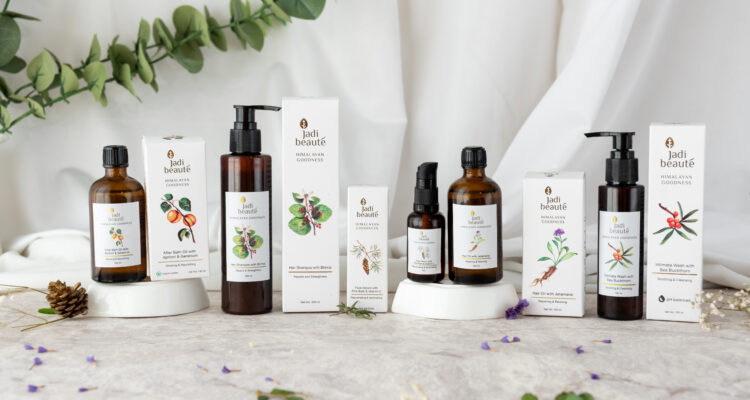
Leave a Reply